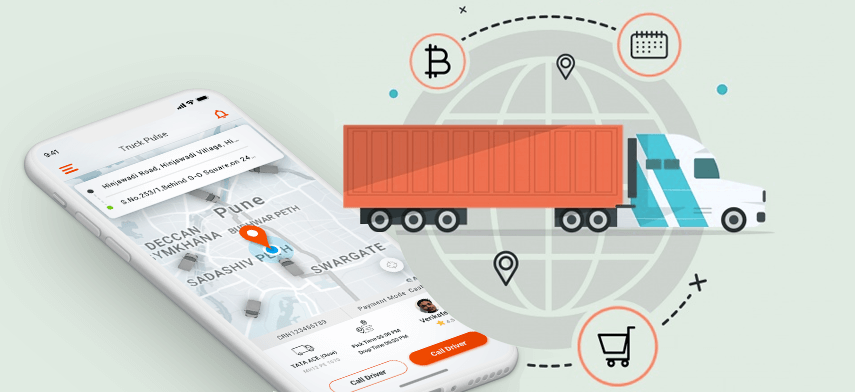A groundbreaking digital platform, named Logistics Marketplace, has officially been unveiled, aiming to transform Africa’s health supply chains into models of speed, visibility, and efficiency. Designed by supply chain specialist Scott Dubin and powered by logistics-tech firm Logixity, the Marketplace opens new pathways for procurement and collaboration across governments, NGOs, manufacturers, and aid agencies.
Table of Contents

From Frustration to Functionality
In many resource-constrained regions, the biggest supply chain obstacle isn’t infrastructure—it’s the inefficiency in identifying reliable logistics providers quickly. As Dubin notes, “the real challenge is discovering the right logistics partners fast,” which the Logistics Marketplace is built to solve.
Operating as a Software-as-a-Service (SaaS) platform, it consolidates supplier discovery, bidding, ratings, and procurement into one streamlined, user-friendly, mobile-friendly interface. Crucially, it works in low‑bandwidth settings and is offered free to qualifying organisations.
How the Platform Works
- Provider Directory – A publicly searchable listing of logistics companies offering cold chain transport, warehousing, regional haulage, and other services. Each provider maintains a detailed profile, enabling visibility and evaluation.
- Tender Hub – Buyers can submit procurement needs, while providers can respond with bids—creating a transparent, competitive procurement process.
- Ratings & Reviews – Users can share feedback, helping peers assess provider reliability and fostering trust across the ecosystem.
- Mobile-First Design – Accessible on smartphones across slow internet conditions, enabling users in rural and underserved regions to participate fully.
- Zero-Cost Access – Eligible entities including governments and NGOs can join and use the platform with no fees—an intentional move to widen access.
Dubin describes it as “a logistics‑native platform” combining the agility of SaaS with a mission-driven purpose: to move critical health supplies faster and more transparently.
Who Stands to Benefit
Buyers
Governments, global health agencies, NGOs, humanitarian actors, and pharmaceutical distributors can now:
- Search for qualified logistics providers.
- Publish tenders for urgent vaccine shipments, medical supplies, or cold‑chain services.
- Manage contracts and logistics procurement centrally.
Providers
Logistics companies—whether cold‑chain specialists or regional transporters—gain:
- Visibility to health-sector buyers.
- Opportunities to bid competitively on tenders that they are well positioned to fulfil.
- An online profile that signals credibility within the ecosystem.
Hybrid Actors
Soon, 3PLs, 4PLs and freight forwards will be able to both post transport needs and provide services via the same platform dashboard, closing procurement and execution gaps.
Strategic Strengths: Speed, Transparency, Inclusivity
1. Fast Onboarding & Response
Merely minutes are required for providers to register and gain visibility. Buyers can submit tenders quickly, with responses possible in real time—crucial during medical emergencies or vaccination drives.
2. Transparent Market
Bids, ratings, and provider profiles are publicly visible—driving competition, reducing barriers, and helping buyers make informed decisions.
3. Designed for Challenged Networks
The platform’s lightweight, mobile-first interface is purpose-built for low‑connectivity environments, making it accessible to users across remote areas.
4. Focused on Public Good
As a free tool for eligible health-focused institutions, the Logistics Marketplace offers commercial-grade capability without financial burden, aligning with broader humanitarian goals.

Why It Matters for Africa’s Health Ecosystem
Reducing Procurement Delays
Health facilities across Africa routinely experience supply disruptions due to delays in procurement and delivery. Logistics providers are often fragmented and difficult to discover. Now, the Marketplace links buyers with vetted providers much faster—a critical improvement when life-saving vaccines or blood products are needed quickly.
Enhancing Accountability
With transparent provider ratings and tender histories, organisations can hold logistics firms to measurable standards—minimising risk, increasing reliability, and improving outcomes in health operations.
Catalysing Market Access
Emerging logistics companies previously marginalised or overlooked now gain access to health-sector contracts, expanding their business and helping build domestic service capacity.
Voices from the Field
Scott Dubin, the platform’s architect, reflects,
“Finding credible logistics partners quickly has always been a major pain point. Logistics Marketplace solves that.”
Lantos Pin, a health-supply-chain strategist, adds,
“This platform marries the speed of SaaS with the public-good mission of delivering health commodities faster and smarter. That’s what our field has been missing.”
Looking Ahead: Scaling the Impact
Though newly launched, Logistics Marketplace is already being piloted by governments, health programs, and NGOs across Africa and other low- and middle-income regions. Its early adoption signals readiness for fast-scale growth, especially as more hybrid service providers and geo-diverse logistics firms join.
Next steps include expanding regional hubs, supporting additional languages, integrating cold-chain tracking modules, and supporting broader humanitarian logistics sectors beyond health.
Comparative Context with Drone-Based Delivery Initiatives
While drone logistics firms such as Zipline (active in Rwanda, Ghana, Kenya, Côte d’Ivoire, and Nigeria) revolutionise last-mile delivery of medical supplies via aerial routes, the Logistics Marketplace serves more broadly as a digital procurement and sourcing hub across road, cold-chain, air, and warehouse logistics.
The Marketplace could support drone operators like Zipline by providing streamlined tender processes, transparent selection, and scalable supplier reach—making the ecosystem richer and more integrated.

Challenges and Considerations
- Digital Capacity: Adoption depends on digital literacy and device access among users, especially in rural areas.
- Verification & Quality Assurance: Robust provider verification systems and performance monitoring must be maintained to prevent malpractice.
- Connectivity Dependency: Even optimised mobile interfaces require some connectivity—gaps in remote areas remain a challenge.
- Sustainability Model: While free access accelerates adoption, a sustainable funding or operating model will be needed to support long-term growth and platform maintenance.
Conclusion
Logistics Marketplace Launches Promising Speed to Health Supply Chains in Africa—not just as a tagline, but as a mission and milestone. It marks a pivotal shift in how health-sector actors identify, procure, and manage logistics services across the continent.
By combining transparency, speed, accessibility, and public‑purpose design, this platform offers a compelling framework for the future of health logistics in Africa and beyond. As more providers and buyers come onboard, its impact could echo far beyond logistics—toward better health outcomes, stronger local economies, and smarter emergency response.
Join Our Social Media Channels:
WhatsApp: NaijaEyes
Facebook: NaijaEyes
Twitter: NaijaEyes
Instagram: NaijaEyes
TikTok: NaijaEyes







































